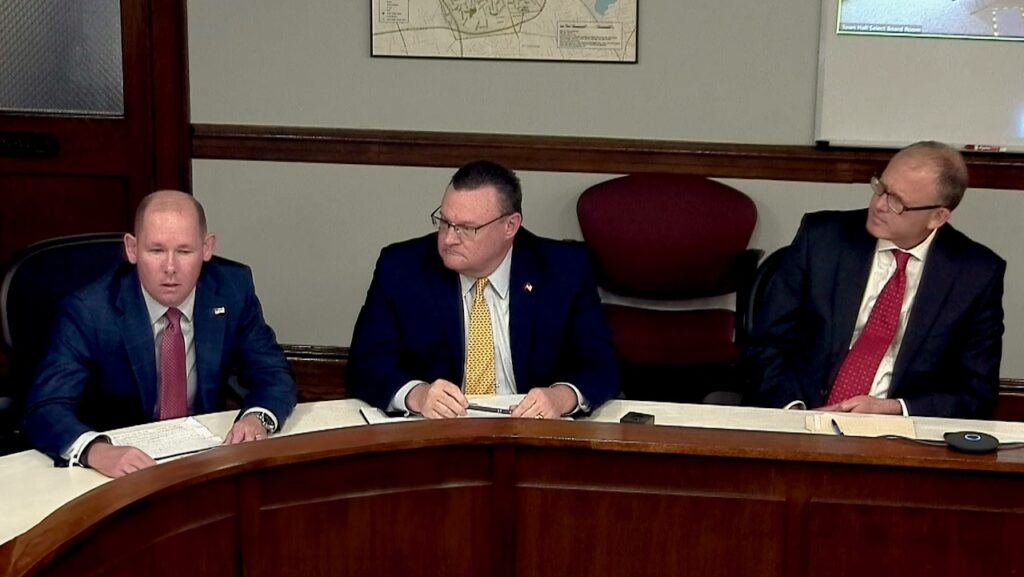Bill reforms estate tax, expands Senior Circuit Breaker & rental deduction
BOSTON – House Minority Leader Bradley H. Jones, Jr. (R-North Reading), State Representative Richard M. Haggerty (D-Woburn), and State Senator Jason M. Lewis (D-Winchester) joined with their House and Senate colleagues this week to support a comprehensive tax package that will provide significant financial relief to Massachusetts residents and businesses.

House Bill 4104, An Act to improve the Commonwealth’s competitiveness, affordability, and equity, phases in a series of tax reforms expected to produce $561 million in taxpayer savings this fiscal year and an estimated $1.02 billion in savings once the changes are fully implemented in 2026. The bill, which represents a compromise negotiated over the last three months by a six-member conference committee, was approved by the House of Representatives on a vote of 155-1 on September 27 and by the Senate on a vote of 38-1 the following day.
The final tax package contains provisions that will benefit seniors, families, renters, commuters and businesses. In addition to increasing the child and dependent tax credit, the rental deduction cap, and the Earned Income Tax Credit, the bill raises the estate tax threshold from $1 million to $2 million and doubles the Senior Circuit Breaker tax credit. According to the Department of Revenue’s most recent usage report figures, 641 Reading residents filed for the Senior Circuit Breaker in tax year 2021 and received, on average, a credit of $1,068 to help defray their housing costs.
House Bill 4104 also authorizes a reduction in the short-term capital gains tax rate and implements a single sales factor for companies beginning January 1, 2025, to encourage economic growth and help maintain Massachusetts-based businesses. In addition, the bill triples the maximum allowable Title V tax credit for homeowners repairing or replacing their septic systems while also expanding the lead paint abatement and taking steps to promote more housing development across the state.
“This long-overdue reform package will provide meaningful financial relief for the state’s taxpayers,” said Representative Jones. “Raising the rental deduction cap and expanding the child and dependent tax credit will help families who are struggling with high housing and childcare costs. I’m particularly pleased that this bill assists our seniors living on fixed incomes by increasing the base credit on the Senior Circuit Breaker Tax Credit, raising the estate tax threshold, and eliminating the ‘cliff effect’ so our older residents can continue to live in the communities where they have established roots and raised their families.”
“This significant tax relief package will provide much-needed financial assistance, making a real difference for the families, seniors, and businesses across the Commonwealth,” said Representative Haggerty. “By expanding tax credits for families and seniors, reforming the estate tax, and addressing our housing challenges with tax exemptions, tax credits, and an increased rental deduction cap, as well as lowering rates for short-term investments, this package puts money back in people’s pockets during a time of rising costs. This tax reform legislation will make our state more competitive and a more affordable place to live and raise a family.”
“The goal of this bill is to help low-income residents, working families, and seniors afford the high cost of living in Massachusetts,” said Senator Lewis. “Substantially increasing the child and dependent, senior circuit breaker, and earned income tax credits, along with raising the rental deduction cap and increasing a number of housing production tax credits will go a long way towards supporting residents who want to continue to live in Massachusetts. I’m particularly pleased that an important provision that I advocated for – to close a loophole in the new millionaire’s tax that voters approved last November – was also included.”
The following provisions are included in House Bill 4104:
- Changes in the tax credit for a dependent child, disabled adult, or senior, which will increase from $180 to $310 in FY23 and to $440 in FY24, and will benefit over 565,000 families;
- An increase in the rental deduction cap from $3,000 to $4,000, which will assist approximately 800,000 renters;
- An increase in the Earned Income Tax Credit from 30% to 40% of the federal credit, which will benefit approximately 400,000 taxpayers earning less than $60,000;
- A doubling of the maximum Senior Circuit Breaker tax credit from $1,200 to $2,400, indexed to inflation, which will assist nearly 100,000 seniors;
- The elimination of the estate tax for all estates valued under $2 million and the establishment of a uniform credit of $99,600, effective January 1, 2023;
- Provisions allowing municipalities to provide up to $2,000 in property tax reductions for older residents participating in the senior work-off program, which is currently capped at $1,500;
- A reduction in the tax on short-term capital gains from 12% to 8.5%;
- The replacement of the current three-prong sales tax apportionment for Massachusetts-headquartered businesses that incorporates property, payroll and sales with a new system that only factors in sales;
- An increase in the maximum tax credit for septic system repairs or replacement under Title V from $6,000 to $18,000, and an increase in the amount that can be claimed to $4,000 per year;
- The doubling of the lead paint abatement to $1,000 for partial abatement and $3,000 for full abatement;
- An increase in the statewide cap on the Housing Development Incentive Program (HDIP) from $10 million to $57 million for one year, after which the annual cap will be set at $30 million;
- An increase in the annual authorization for the Low Income Housing Tax Credit from $40 million to $60 million;
- Provisions allowing cities and town to adopt a local property tax exemption for renters whose income falls below a certain level set by the community;
- Language making public transit fares and certain other expenses eligible for the commuter expenses tax deduction; and
- Provisions exempting employer student loan payments from being counted as taxable income by the state.
House Bill 4104 is now on Governor Maura Healey’s desk for her review and signature.

